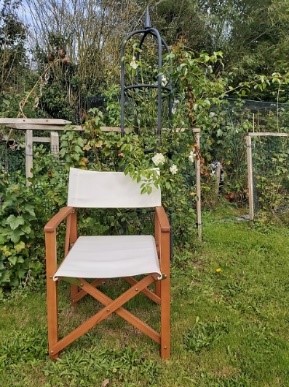10 September 2020
Out of Office
Back to work.
By J.R. Thomas
 Here we are in the New Normal. Perhaps. Certainly we are never going back to the old normal office again. What, putting on ties, and trousers, no toast and Nutella at 11.15, no Radio 3 (or 2, if such be your choice) to brighten the day, and as for the idea of cramming onto the 7.23am each weekday morning… No, no, never again no more on the 7.23am.
Here we are in the New Normal. Perhaps. Certainly we are never going back to the old normal office again. What, putting on ties, and trousers, no toast and Nutella at 11.15, no Radio 3 (or 2, if such be your choice) to brighten the day, and as for the idea of cramming onto the 7.23am each weekday morning… No, no, never again no more on the 7.23am.
Now, before we launch into these dangerous waters, we must have a session of confession, to avoid any charge of hypocrisy. The Shaw Sheet, though operating from magnificent Arts and Crafts premises in the centre of the City of London (the great presses booming constantly in the basement, the windows open to release the heat of creativity and the noise of learned debate, the supplies of black ink – and green – constantly refreshed), does on occasion allow its employees to work from home. In fact, to be totally honest, none of the writing staff has ever actually been in the office, and the description above is based on our editors’ description of the majesty of the premises to which one day we may be summoned. Currently, we all work from our garden sheds or dining tables or marble baths.
But in spite of the attractions of this home-based lifestyle (including not having R Pooley peering over one’s shoulder when trying to game Harvard prejudice tests) there are a number of drawbacks. Lack of interaction with one’s colleagues, the difficulty of maintaining a strong corporate and style culture (writing style, not tweeds and trainers), communication mangled and slowed over the internet or telephone, an inability for the young to learn from their elders and vice versa, are the less obvious one perhaps; the more obvious are distractions, what Cyril Connolly called “the perambulator in the hall” – or the need to visit Waitrose (again), the weeds amongst the roses, the extended lunch hour in the pub – difficult self-discipline when five minutes from the office, impossible when two hours away.
It takes an iron will to sit at the desk for the required eight hours a day or so. The iron will is often in effect that of the boss, sitting at the corner desk or, in some worlds, in the corner office, and keeping a beady eye on what is going on across his team. Is that chat in the middle desks dreaming up a new marketing campaign, or discussing funny kitten videos? Is the group around the water cooler devising a better accounting conciliation process, or reviewing last night’s big match? Are the writer and the sub editor in the pub discussing split infinitives – or in the wine bar drinking for infinity? The good boss will know, almost instinctively. She won’t, though, if the desks are empty and the team are all at home. Even if she unsportingly monitors laptop activity, the techie-wise know how to get round that.
There are reasons for allowing working at a home and a good boss will accept that a complex board paper might be easier to draft in a back bedroom, a new baby is going to be a distraction even more in the office than working one room away at home, that some Amazon parcels are just too important and valuable to leave outside all day. Not a problem. Occasionally. But work does get done faster and more efficiently from the disciplined workplace than the freestyle home office. Sorry all you cool cats who think you work better at home sitting next to your warm cat, you may think you work more effectively in domesticity and sometimes no doubt you do. But as a generality, once the initial urge to show the boss that output increases when originated from the garden shed and that the tediousness of commuting suppresses energy and originality, a trend appears. And continues. Productivity slumps.
The UK civil service really does not want to go back to the office, we read in the newspaper. It is so much more effective at home. Wallington and Wendover are really more conducive to hard work than Whitehall. We can see that. Tried renewing your passport recently? Usual times, four to six weeks at the most, now fourteen to eighteen weeks and rising. Of course, passports cannot be issued from a civil servant’s home address, but in theory most of the work can be done there and some poor sap in the empty office authorised to start the printer and send the thing to the anxious traveller. Doesn’t seem to be home working that way though. How about refunds for surrendered car tax? Normally two or three days. At the moment, at least three weeks. And the private sector is almost as bad, though the wings of competition beat things to happen a little faster. Your correspondent for some years toiled in a paperwork factory and a kindly boss allowed some flexibility to employees as to whether they came on every day every week. Some took no advantage; some worked as much but at different hours. And some swung the lead in an impressive way. But overall, the results were clear. Less output. (Smarter gardens though).
The truth is that the office makes things happen faster and better. For all its faults and distractions, it evolved because it was the best way of getting things done, of fencing off distractions, of managing teams, of inculcating a spirit of hard work, of teaching the new and re-educating the old. In Europe there are signs that not only are most office based workers back on the swivel chairs, but that many of them are glad to be so, seeing their colleagues and friends, getting back the routine of a productive daily life – and in some cases avoiding the pram in the hall.
Why aren’t the Brits? Well, it has been a lovely summer and fun to be at home doing not a lot, and in many cases being paid for it. Commuting in this country is not nice; rush hour trains everywhere are unpleasant, but commuters in the UK, especially into London, travel much longer distances than in many countries. The rush hour roads here are more congested than many European cities, (not Paris, agreed) and driving to work in the USA is often a doddle (not New York). And British workers tend to work longer hours than many in Europe, albeit many are better paid (yes you are, you just have bigger mortgages and swankier cars to absorb it).
So, the bad news for those ordering the super delux garden shed or battling with Openreach to get their connection speed enhanced is that the days of working from home may well be short. The boss will be watching, he will be gathering data, he will be summoning his team to briefings on the third floor. And gradually he will be tugging increasingly hard on that subtle chain that ties the workers to the paper factory, and slowly back to the office they will have to drift. And more quickly when it becomes apparent that those with the bigger bonuses are the ones leaning on the boss’s door frame, laughing loudly at his brilliant jokes.
Enjoy life by the range whilst you can. The old ways will triumph in the end. Even the Shaw Sheet writers may finally have to go and find their desk in that reputed Shangri-La. Let’s hope we are not disappointed.


